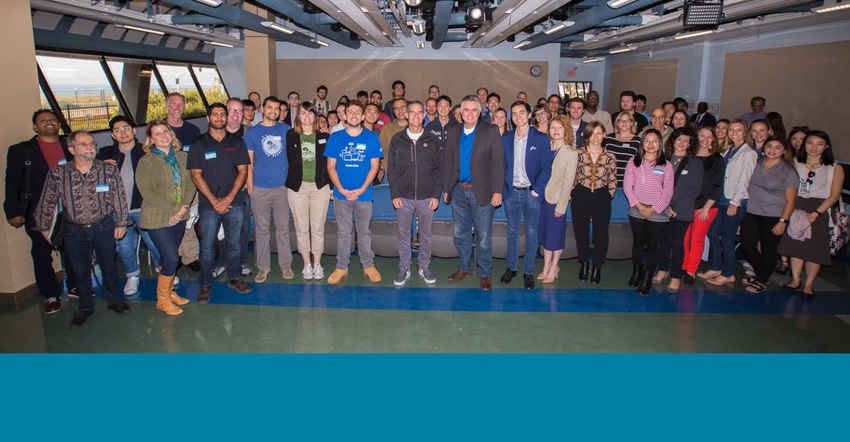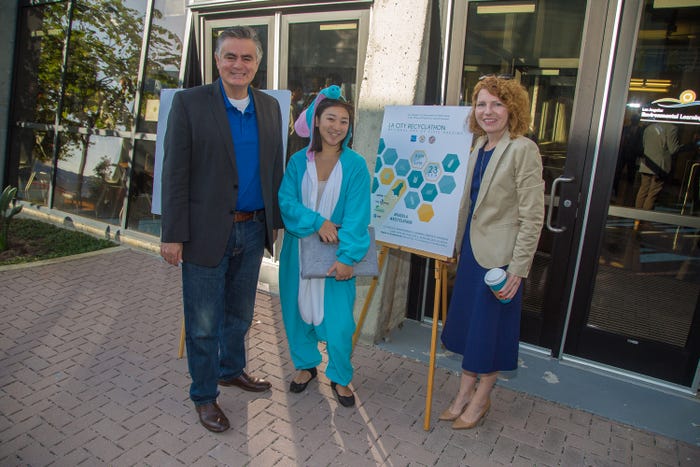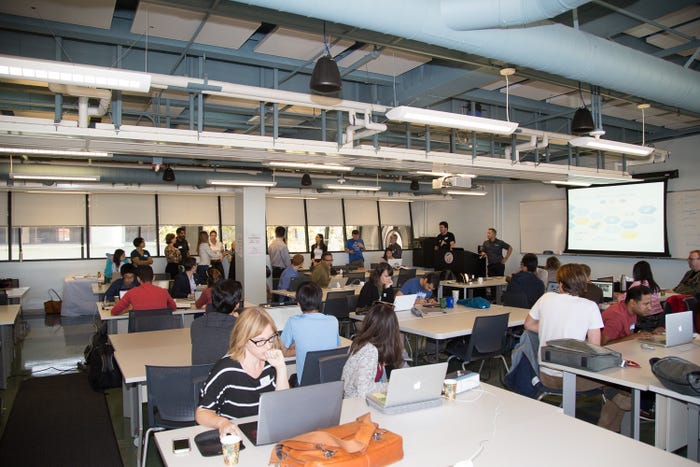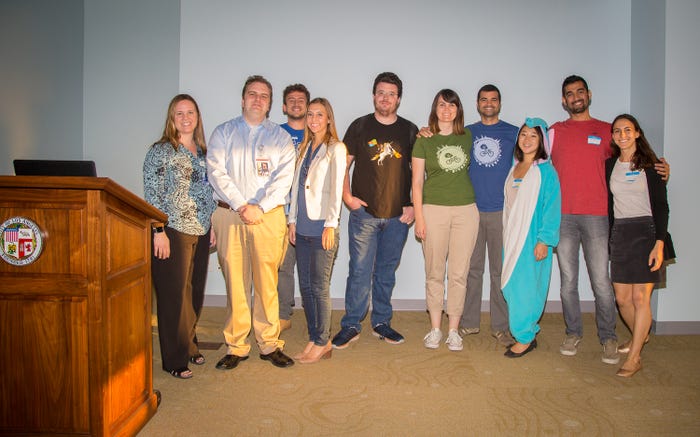At the recent Recycling Hackathon in Los Angeles, recycling experts teamed up with technology gurus to create technology-driven solutions for reducing contamination.

Ready, set, hack! At the recent Recycling Hackathon held at the Los Angeles Environmental Learning Center in Los Angeles and hosted by L.A. Sanitation, Los Angeles Mayor Eric Garcetti and the L.A. Department of Public Works, recycling experts teamed up with technology gurus to create out-of-the-box, technology-driven solutions for reducing contamination.
“The City of L.A. is always looking for new ways to increase its recycling participation and to decrease contamination in its recycling bins,” says Melissa Plamondon, an environmental specialist for L.A. Sanitation. “Other cities have hosted hack events, and we thought it would be a great way to find new ways to solve the issue of contamination with technology.”

The hackathon kicked off with presentations by Mayor Garcetti, L.A. Department of Public Works Commissioner Heather Repenning and L.A. Sanitation Director Enrique Zaldivar. Each presentation highlighted the work the city is currently doing to reduce contamination, boost recycling efforts and improve the city’s economy and environment.
"We are bringing data and technology to our waste and recycling programs to help us track the movement of materials through the system,” says Repenning. “Our goal is to better educate residents and to improve our services so that we can meet our recycling targets."
After the presentations, event attendees split up into groups of up to five people to come up with creative ways to reduce contamination and improve recycling efforts. The 13 teams had about five hours to develop their solutions, which were later presented to a group of judges. The judges included Ryan Gates of Microsoft, Eva Zheng of Hacker Fund, Melissa Plamondon of L.A. Sanitation, James Mauldin of L.A. Sanitation and Tania Ragland of Republic Services.

The judges selected winners in two main categories: the Best Use of Data and the Best Idea Pitch. The winner for the Best Use of Data was Raunak Pdednekar. Pdednekar’s project analyzed data from recycling bins to understand what, when and where the City of L.A. should focus its outreach efforts to reduce contamination in recycling bins. Currently, 30 percent of items found in the city’s recycling bins aren’t actually recyclable, which means the city has to ship its recycling to other countries. This both increases costs and greenhouse gas emissions, which isn’t good for the city or the environment. Pdednekar addressed this problem, and shared how outreach efforts could help combat this issue.
The winners for the Best Idea Pitch were Lucas Magasweran and Rachel Magasweran, who created a smart solution called RecycLAble. The solution is to use computer vision and a mobile app for residents to use in the comfort of their homes. The app would be able to scan and identify recyclable products and materials, so that users can easily understand which waste or recycling stream their items should be placed in. If the item is recyclable, the app will provide information on the recycling process for that item. If the item is not recyclable, the user can learn about nearby public resources such as drop-off centers and hazardous waste collection facilities. The app would also provide feedback to the users about the city’s recycling performance by using real-time data from L.A. Sanitation.

In addition to the two main winners, Hacker Fund, a nonprofit incubator for charitable, educational and scientific projects, awarded five teams with Incubation Awards. The five winners were offered an interview to join the incubator and to continue working on their social impact project.
“The Recycling Hackathon was a great way for us to see how we can utilize resources in a different way,” says Plamondon. “There is amazing technology available in the world today, and we need to take advantage of the technology moving forward to reduce contamination and to create a cleaner environment for future generations.”
About the Author(s)
You May Also Like




